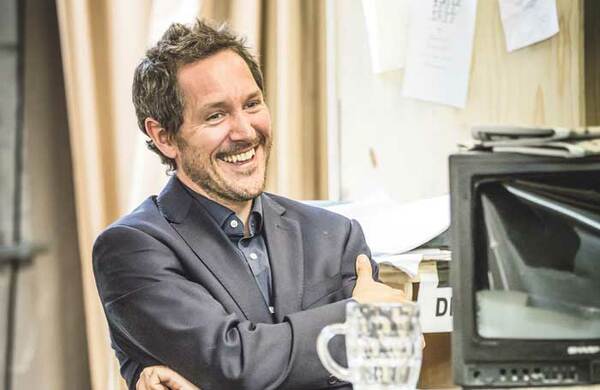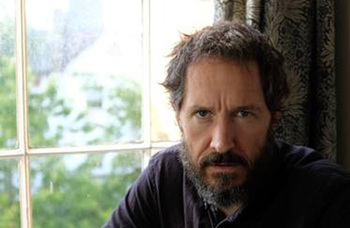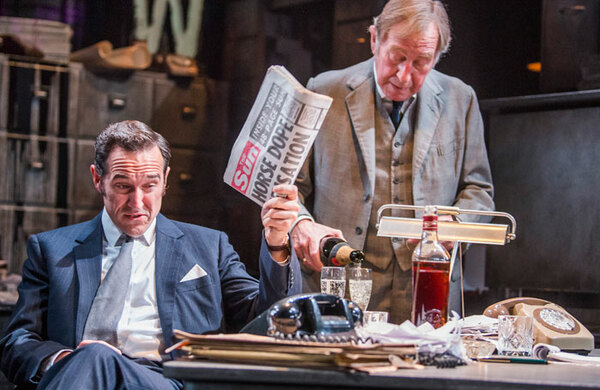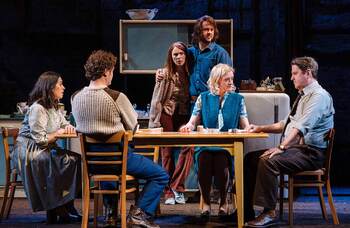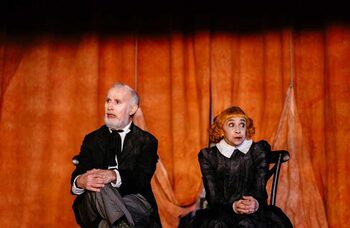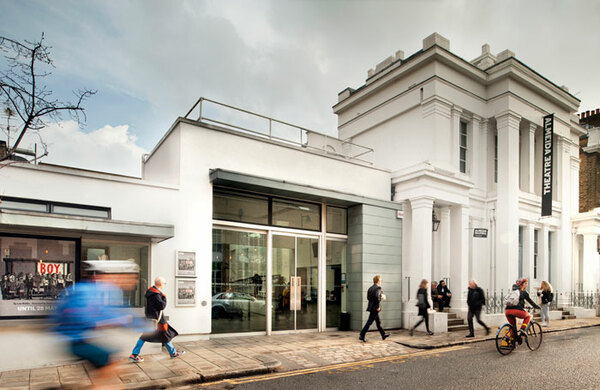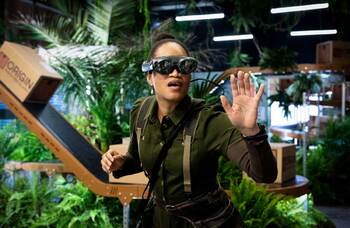Ink
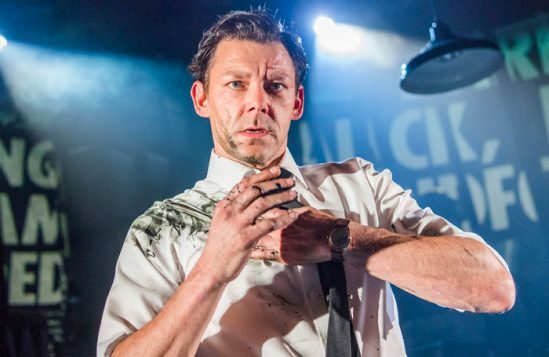
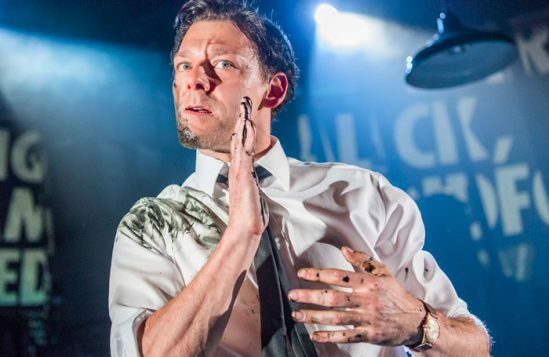
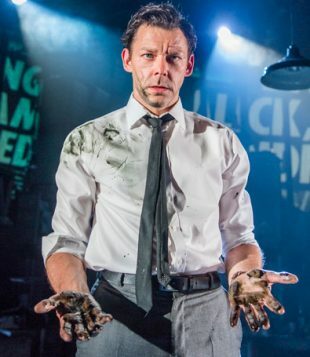
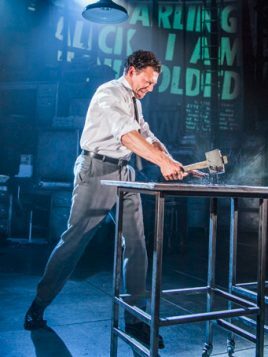
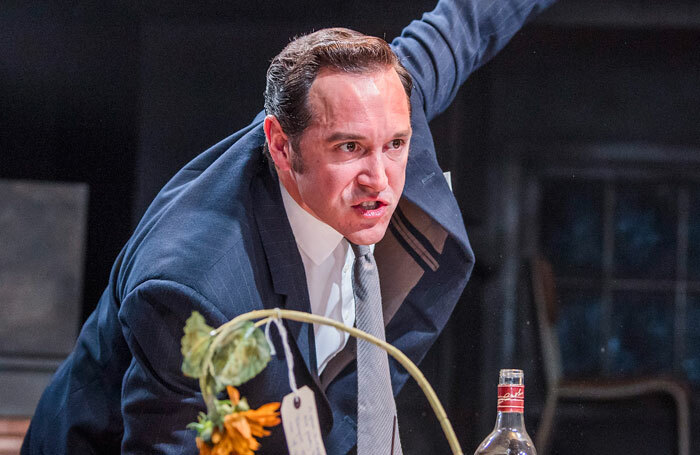
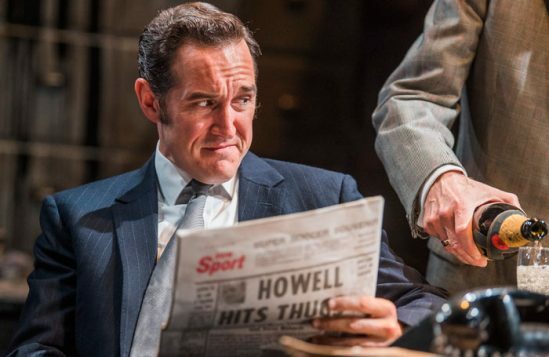
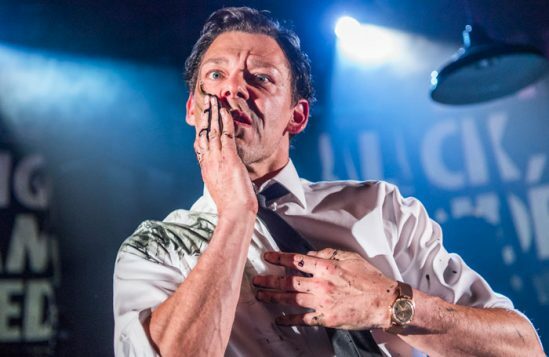








The Sun was an ailing broadsheet when it was purchased by ambitious Australian businessman Rupert Murdoch in 1969. Together with editor Larry Lamb, Murdoch set about transforming it into a new kind of paper, one that set out to cater to ‘ordinary people’ by writing about gossip, sport, sex and, God forbid, television.
James Graham’s new play is a fascinating study of Fleet Street as it once was. With typical deftness, Graham shows how Lamb used the paper’s budgetary limitations to his advantage. He was irreverent and unafraid to make his paper popular.
There’s a very funny, and superbly choreographed, scene in which Lamb recruits his editorial team – including his majestically humourless deputy Bernard – before gathering ideas on making a paper that people would actually want to read. These included free stuff (everyone loves free stuff), horoscopes, celebrity tittle-tattle and, naturally, the weather – in a prime position on page two. Graham is so good at this kind of thing. He’s brilliant at mining recent political and social history to create compelling theatre.
In the play’s darker second half Graham uses two incidents to explore the murkier side of journalism at The Sun. The first is these is the kidnap of Muriel Mckay. Mistaken for Murdoch’s wife, she was held to ransom and murdered. The other is the introduction of the Page Three girl. Both are used by Lamb as tools to shift papers and trounce the Mirror in the circulation wars. The gutter beckons and he wades in willingly.
As Murdoch, Bertie Carvel’s performance consistently avoids caricature. Not yet the reptilian old man of today, Carvel plays him as a square-shouldered, stiff-limbed, and somewhat socially awkward figure, intent on disrupting the old models of journalism.
Richard Coyle’s Lamb, the son of a Yorkshire blacksmith, is as much of an outsider as Murdoch, and equally keen to make a lasting mark on the establishment. Coyle is the play’s driving force – and he’s super – but every time Carvel appears on stage the production shifts up a gear.
While Graham does not shy away from exploring journalism’s moral ambiguities, there’s a great deal of affection in Rupert Goold’s production. He uses movement sequences to convey the thrill of hot type: the glow of molten metal and the clang of hammers. Bunny Christie’s set consists of a temple of metal desks, with headlines cascading down the walls. The play lovingly recreates a world clouded in cigarette smoke and fuelled by booze but also with its own codes, rules and principles – all of which Murdoch would be instrumental in sweeping away.
The secondary characters feel thinly-sketched in comparison and a scene in which Lamb convinces a young model (Pearl Chanda) to disrobe for the first ever Page Three photo shoot affords her more agency than seems likely, but Graham’s skill lies in the compelling way his play tells its story while also asking questions about the role of the press in society today, its power, influence – and responsibility.
More Reviews
Recommended for you
More about this person
More Reviews
Recommended for you
Most Read
Across The Stage this weekYour subscription helps ensure our journalism can continue
Invest in The Stage today with a subscription starting at just £7.99
